A quick and slightly belated report from my visit to the IETM small meeting in North Wales 13th - 16th Sept 2018.
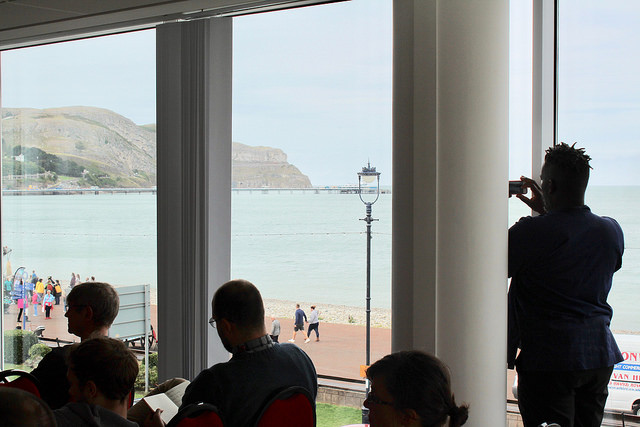
"if you want to fast - go alone
if you want to go far - go together"
African Proverb
Firstly, the IETM crowd we’re very interested in Edgeryders, what we do, how we do it and where. They fast tracked me into the session, even though the application window had closed weeks before.
The satellite version of these meeting is a much smaller cohort of members, and in this instance probably had a disproportionate number of ‘local’ artists and performance makers. Partly due to the location in Wales (which is often under served by international arts meetings) and also because of the theme of the conference: Fields of Vision - Other voices, rural places, global stories.
Wales is probably one of the most rural regions in Northern Europe, with only 6 cities (3 within 40mins drive each other on the southern coast, 1 on the mid west coast and 2 in the north - the smallest city St Davids has a population of only 1.800 people!) This says more about the crazy way that cities are designated in the UK than anything else.
The whole group of us filled a coach on one day as we were taken through the Snowdonia National Park to nearby University town of Bangor where a large multi discipline arts venue has recently opened, funded by the University and public/private investment money.
The focus of the event was around case studies and discussions led by artists and cultural managers with direct experience of working in rural settings. There was a lot of talk about site-specific practice, working outside of the confines of traditional theatre environments. The modern artist must work to inspire people, wherever they are, not just by bringing them to cultural centres.
This idea resonated deeply with me as i thought about the Edgeryders displaced connections that grow through digital platforms. Over the next few years there will be a drive from cultural organisations across the globe to finally understand the place for the digital realm in the live arts field. Trying to be out there ahead of that curve is a benefit, but there will be a lot of experiments and a lot of failures before anyone finds the real synergy between these 2 platforms (online/live)
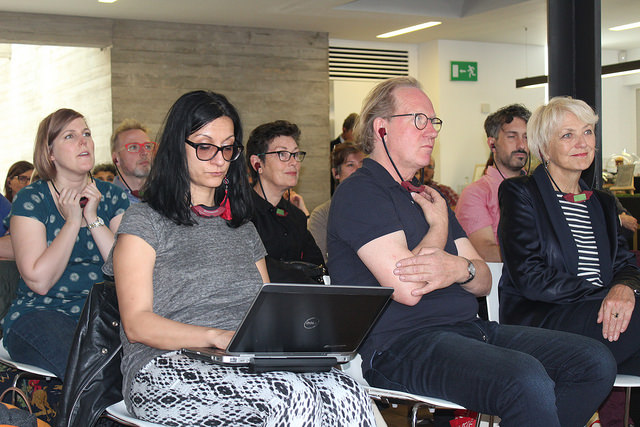
We heard a lot from an artist and cultural manager called Henk Keizer from Culture Forum Denmark (former board member of IETM and part of the Leeuwerden 2018 ECoC and Elefsis 2021 ECoC bid) His heart is obviously very much in the rural artistic practice and he suggested that the artists who want to connect with the bg issues of the world are largely working outside of the cities. He presented a number of case studies of projects that engaged with remote an rural communities, often looking at major issues around the future of communications, responses to tragedy in communities, the difficulties of farming and food. His view is very much that rural areas are now the front line for transformations of our societies, given that they are tied so intrinsically into our food/nature/ecosystems.
There was a clear idea that the objective of the arts in rural settings is not to bring ‘culture’ to the area, but instead to uncover and pay tribute to the culture that already exists in those place. People want to be seen and heard first and foremost, therefore the job of the artist in these settings is to be a journalist first. Being sincere is more substantial than being polite.
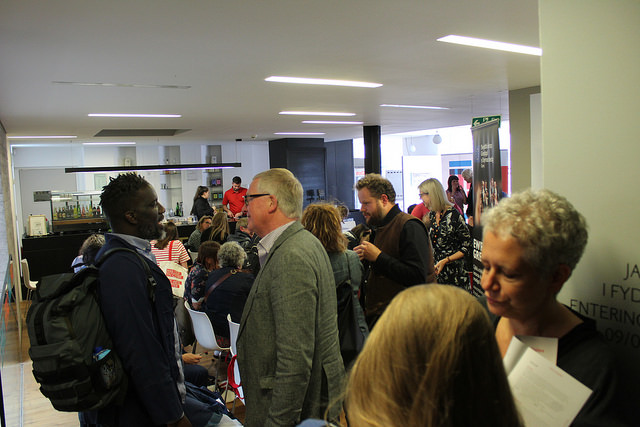
There was also the beginning of a discussion about cross-sectoral and cross-borders working throughout the EU as a way around the politics of national arts funding bodies and as a way towards a better Federated arts practice. Understanding the role of networks and communications between citizens in Europe to develop artistic responses to problems.
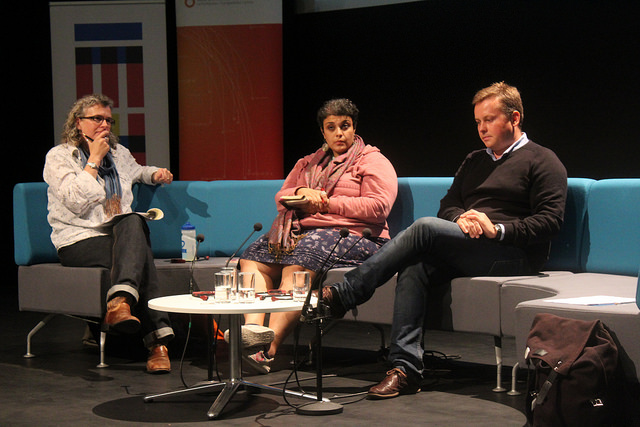
We also had a great case study presentation from Heba El Cheikh from Mahatat, based in Egypt. They produce community driven artistic responses to local issues moving between 3 smaller cities in Egypt. A lot of the work that she does reminded me immediately of @HadeerGhareeb work in Morocco with Toys from Trash. Heba mentioned that she is heading to Morocco in the next few months, so if Hadeer is still there then you should definitely meet up! I only got to speak to her for 15 mins right at the end of the conference, but i did pick up some copies of her Face to Face toolkits and her contact card
I also met with Annie Roy from ATSA, a Quebecois performing arts company who specialise in work that is all about social changemeking, and who are very well established internationally. We’re already talking with them about them pitching in with our Culture Squad application for the RebelVillage project in Stockholm 2019.
Alongside this we talked about their next large scale project which is all about data and data science, and about how little people know about the data that is available on them. I mentioned that there would be a perfect fit into our community if she were looking for experts in that particular field.
As a result of these conversations i and @natalia_skoczylas are working out if we can go to Clermont Ferrand in 2 weeks time to see their art in action (paid for by the Cultural Attache for Quebec) This is a dry run for an ECoC bid for 2028 from Clermont Ferrand, so another chance for us to start a few conversations about Edgeryders ECoC work.
On the final day i met very briefly with Tunde Adefioye, who is a City Dramaturge based in Brussels. I have no idea what a City Dramaturge does, but it sounded wonderful and immediately i thought of @anique.yael, @matteo_uguzzoni and @noemi. Particularly around the Cities of Play project. If anyone who is in Brussels would like to meet up with him for coffee and find out more about what he does/see if there’s more Edgeryders overlap then let me know. I will upload his contact details to our database.
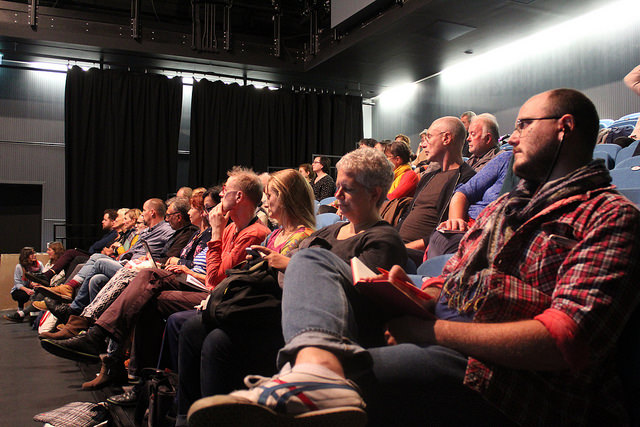
The penultimate note is about structures and support mechanisms.
Firstly, from a structural point of view it was very old fashioned. a lot of sitting in rows and listening to case studies. A lot of passive and not much active. Acknowledging that on a number of occasions i could sense there was an desire for something a bit more active and non-hierarchical. In the one session where we got to work together i took a leaf from @thomas_goorden at LOTE5 and i took the lead facilitator for the whole festival for a 20 minute walk through the woods to talk about artistic practices. It was the best part of the meeting. There is much that we could bring to the network.
Secondly, something we could learn. Because the event was in Wales there were live translators available for all of the sessions. This allowed panel members and members of the audience to speak in Welsh (an official language of the country) and everyone present to still have English translation. This required a translator, headsets and short wave transmitter set up.
Certainly something we could consider for some of our events going forwards, especially in Brussels, allowiing us to operate in Euro English, but to have French or similar translations for other participants. We may be able to access funding locally to integrate this into future large scale events. It would also be worthwhile thinking about having a permanent system like this in any future Reef spaces. Then only the translator would be needed for events. Perhaps one for @alberto and @mariacoenen when they are considering future spaces.
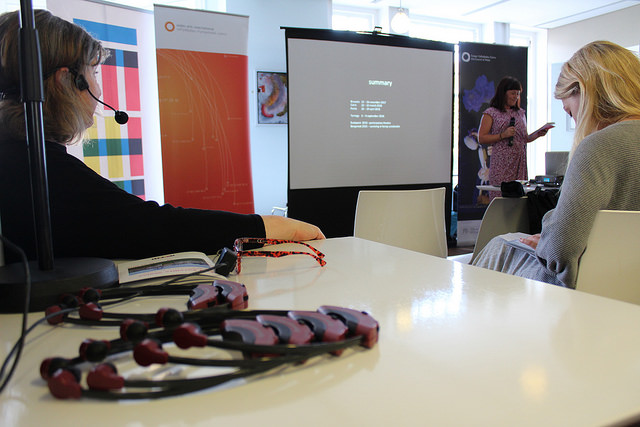
Finally, there are 2 more IETM meetings before the end of the year. IETM Munich in early November and IETM Caravan Palestine in late November. I am in discussion to attend the Munich plenary with @natalia_skoczylas so we can have even more conversations. I expect there to be around 300 delegates at that session, so the more people on the ground for that session the wider a net we can spread. Additional delegates from Edgeryders will cost Euro50 each if we book before 12:00 CET Friday 28th Septmeber, or 100Euro after that. If there are a small group of us we can share an Airbnb in Munich. If anyone is interested let me know asap and i’ll book it in.
For the Palestine Caravan i have an extra day to apply, but it is by application only. They are specifically looking for organisations that are interested in developing links in that region. Edgeryders fits becasue we are still looking at MENA activity and how we can grow our presence there. I wondered if @hazem, @HadeerGhareeb or @zmorda wanted to go along with their MENA development opportunities hats on? I’m very keen to go myself, but there is an overlap with the UNDP Istanbul EconSciFi dates, so i may have to join later. IETM have told me to apply anyway on behalf of Edgeryders with a caveat that it may be me or another representative going. I will start to write the application on Friday, so if anyone is interested then let me know.
If anyone wants to read the official commisioned article about the satellite event it is online here:
https://www.ietm.org/en/themes/temperament-and-innovation-the-performing-arts-in-a-devolved-wales